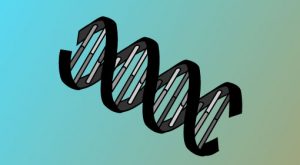Those That Prefer Fatty Foods May Be Genetically Predisposed
 Scientist have discovered that people who have special forms of the gene CD36, may prefer high fat foods more than those who do not have the same set of gene forms.
Scientist have discovered that people who have special forms of the gene CD36, may prefer high fat foods more than those who do not have the same set of gene forms.
Researchers say this may explain why some people struggle to stay on low fat diets. The findings may also help clinicians personally select diets for their patients, aiding their success.
“Fat is universally palatable to humans, yet we have demonstrated for the first time that people who have particular forms of the CD36 gene tend to like higher fat foods more and may be at greater risk for obesity compared to those who do not have this form of the gene,” says Kathleen Keller, assistant professor of nutritional sciences at Penn State and co-author of the study. “In animals, CD36 is a necessary gene for the ability to both detect and develop preferences for fat. Our study is one of the first to show this relationship in humans.”
Source: http://www.sciencedaily.com/releases/2012/02/120203113312.htm
 Eating Disorder Self Test. Take the EAT-26 self test to see if you might have eating disorder symptoms that might require professional evaluation. All answers are confidential.
Eating Disorder Self Test. Take the EAT-26 self test to see if you might have eating disorder symptoms that might require professional evaluation. All answers are confidential.